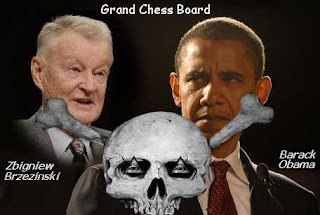 Speaking within hours of Barack Obama’s election, Mr Medvedev announced that Russia would base Iskander missiles in its Baltic exclave of Kaliningrad – the former German city – next to the border with Poland.
Speaking within hours of Barack Obama’s election, Mr Medvedev announced that Russia would base Iskander missiles in its Baltic exclave of Kaliningrad – the former German city – next to the border with Poland.He did not say whether the short-range missiles would carry nuclear warheads.
Taking advantage of the world’s attention on the US elections, Mr Medvedev also cancelled plans to withdraw three intercontinental ballistic missile regiments from western Russia by 2010.
In his first state-of-the-nation address, Mr Medvedev said the missiles would be deployed “to neutralise if necessary the antiballistic missile system in Europe”. He added that Russia was also ready to deploy its Navy off Kaliningrad and to install electronic jamming devices to interfere with the US shield, which relies on a radar station in the Czech Republic and ten interceptor missiles in Poland.
Nato’s eastern members greeted the Russian move with dismay.
A Czech Foreign Ministry spokesman described the Kremlin’s move as unfortunate. Lithuania’s President Adamkus accused his Russian counterpart of going back on his word.
But government ministers and parliamentary deputies assembled in the Kremlin applauded Mr Medvedev.
The President failed to congratulate Mr Obama or even to mention him by name during the 85-minute address televised live across Russia.
In a criticism directed at the US, Mr Medvedev said: “Mechanisms must be created to block mistaken, egotistical and sometimes simply dangerous decisions of certain members of the international community.” He accused the West of seeking to encircle Russia and blamed the US for encouraging Georgia’s “barbaric aggression” in the war over South Ossetia in August. He also gave warning that Russia would “not back down in the Caucasus”.
“The August crisis only accelerated the arrival of the crucial moment of truth. We proved, including to those who had been sponsoring the current regime in Georgia, that we are strong enough to defend our citizens and that we can indeed defend our national interests,” Mr Medvedev said.
“What we’ve had to deal with in the last few years – the construction of a global missile defence system, the encirclement of Russia by military blocs, unrestrained Nato enlargement and other gifts . . . The impression is we are being tested to the limit.” The outgoing President Bush insists that the missile shield is aimed at rogue states such as Iran, but the plan has infuriated Moscow, which argues that it threatens Russia’s security.
Mr Medvedev said that Russia had been forced to cancel its plans to withdraw the intercontinental ballistic missiles, which have a range of 6,200 miles (10,000 kilometres). He said: “We want to act together. But they, unfortunately, don’t want to listen to us.”
Mr Medvedev blamed the US for the global financial crisis, saying that the rest of the world had been “dragged down with it into recession”. He said that the era of American dominance after the collapse of the Soviet Union was over. “The world cannot be ruled from one capital. Those who do not want to understand this will only create new problems for themselves and others,” he said.
Mr Medvedev, who was elected in March, also set out proposals to extend the presidential term from four years to six. He did not say whether the reform would apply to his current term.
Room for manoeuvre
—Iskander SS26 (codenamed Stone by Nato) is an export variant of the more powerful Iskander M
— Weighs 3.8 tonnes, carrying a payload of 480kg
—Range of 174 miles (280km). Can travel at 2,100m a second and hit within 20m of target
—Easily transported by a truck or transport-erector-launcher (TEL)
—A TEL, below, can carry two ready-to-launch missiles and two more for reloading. Equipped with advanced targeting technology
Sources: fas.org, defence-update.com
No comments:
Post a Comment